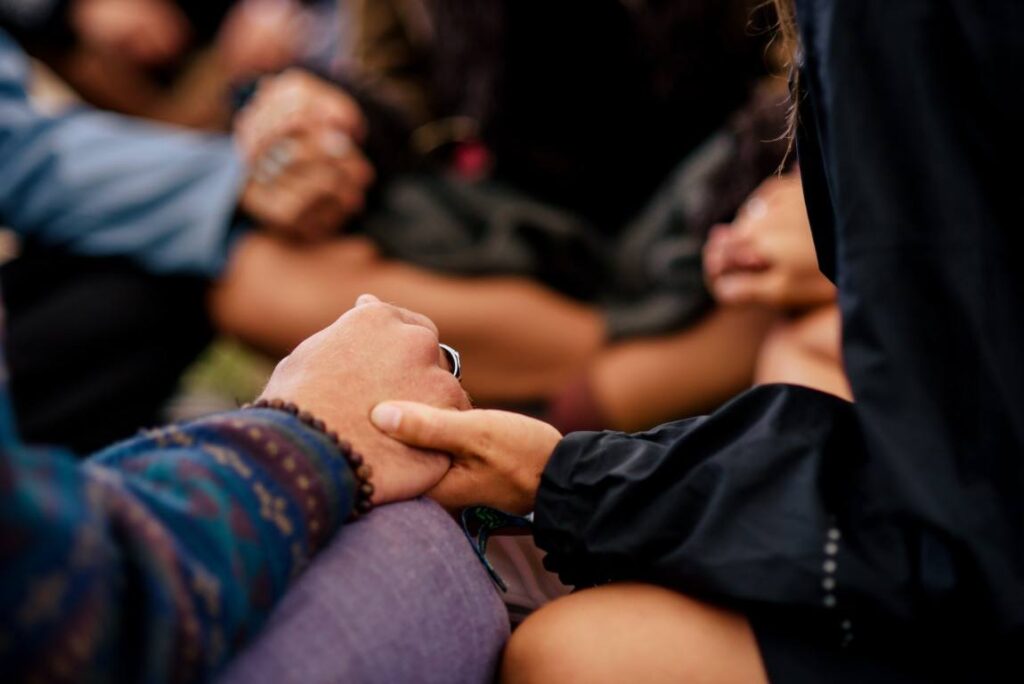Moving Beyond Polarity Through The Power Of Our Shared Humanity
At the heart of Earth Beat lies a profound understanding of the interconnectedness of all beings. As we gather to celebrate music, art, and culture, we are also celebrating the humanity that connects us all—our shared humanity that transcends the boundaries of race, culture, and nationality.
In a world where division and polarization often seem to be the norm, Earth Beat serves as a beacon of unity. We strive to create a space where all are welcome, and where our diverse cultures, backgrounds, and perspectives can be celebrated and honored.
It is not our differences that divide us. It is our inability to recognize, accept, and celebrate those differences.
Audre Lorde
Embracing our shared humanity is a powerful cornerstone for overcoming adversity. At Earth Beat, family comes first; we are all family, and the compassion and care this brings are at the forefront of our interactions. Here, we can learn how to work towards a brighter future and feel supported in acknowledging and facing challenges head-on, from social injustice to environmental degradation.
Not everything that is faced can be changed, but nothing can be changed until it is faced.
James Baldwin
In her article He started it! And other Sources of War—The Logic Chain to Hatred and Violence, Carol Sanford’s concept of “third force blind” inspires an approach that encourages us to move beyond polarities and binary thinking by recognizing that there is often a third perspective or force that can help us find common ground in our shared humanity.
By acknowledging that our world is not black and white, but rather a complex tapestry of interconnected experiences and perspectives, we can seek out and embrace this third force, breaking free from the constraints of identification. In Carol’s work, identification refers to the process of categorizing ourselves and others based on external characteristics, such as race, gender, nationality, or social status. These external labels can limit our understanding and perpetuate divisions. By moving beyond identification, we can appreciate the unique experiences and perspectives that each individual brings, fostering a more inclusive, compassionate, and understanding environment.
Putting this concept into practice means actively engaging with others, seeking to understand their perspectives, and working together to find pathways that honor our shared humanity. It requires us to be open-minded, empathetic, and willing to challenge our own assumptions and biases.
The determination and willingness to face our challenges is further echoed by Martin Luther King Jr.’s powerful statement about the threat of injustice and our inescapable network of mutuality and interconnectedness.
Injustice anywhere is a threat to justice everywhere. We are caught in an inescapable network of mutuality, tied in a single garment of destiny. Whatever affects one directly, affects all indirectly.
Martin Luther King Jr.
Edward Said, a distinguished Palestinian scholar and influential postcolonial theorist, builds on this idea by emphasizing that our world is much more complex and interconnected than we often realize.
In 1998, Said delivered an important lecture called The Myth of The Clash of Civilizations. The lecture critiques the book The Clash of Civilizations, written by Samuel P. Huntington, which has heavily influenced foreign policy in the West from the late 1990s till today. Huntington categorizes people into distinct and separate civilizations based on cultural and religious differences, fueling an “us” versus “them” paradigm. It reinforces stereotypes and perpetuates the myth of an inherent conflict between different cultures, fostering division and hostility instead of understanding and cooperation. In his critique, Said encouraged us to avoid oversimplifying cultures and to embrace the diverse yet shared human experiences that connect us. He advocated for dialogue and understanding among cultures, emphasizing that exchanging ideas can foster harmony and peace.
Said’s insights remind us of the importance appreciating the diverse cultures, histories, and experiences that shape our world. By doing so, we can foster a more inclusive and compassionate environment at Earth Beat and in our society at large, where we celebrate the beauty of our interconnected world and the depth of humanity that connects us all.





